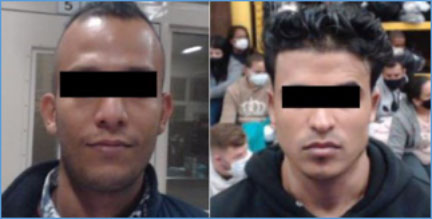
On April 5, 2021, U.S. Customs and Border Protection issued a press release so unusual and politically problematic for the administration of President Joe Biden that it could not possibly survive the light of even one full day in publication. It didn’t.
The bulletin disappeared from the federal border agency’s “newsroom” page only hours after proudly announcing that, amid a full-blown mass-migration crisis the Biden administration is desperately trying to downplay, Border Patrol had apprehended two Yemeni immigrants in Calexico, Calif., who were on the FBI’s terrorism watchlist, one of whom also was on the No Fly List and carrying a hidden cell phone sim card inside a shoe insole. (See a captured internet archive version of the spiked CBP press release here).
The spiking appears to have worked exactly as those who ordered it must have planned, whoever they were. In the two months since, no one in America’s legacy media has questioned its appearance and disappearance. As though it were the bad subject at Thanksgiving dinner, no one dared report or ask questions about terrorist suspects crossing the California border from Mexico during an unprecedented mass migration crisis that is collapsing border management systems.
Until Thursday.
That was when Wisconsin Rep. Tom Tiffany (R) used part of his five-minute time allotment during a House Judiciary Oversight Committee hearing to pointedly ask FBI Director Chris Wray for an update on the two watchlisted Yemenis. And also for Wray’s opinion about the terror infiltration threat at the southern border more generally. Rep. Tiffany had just returned from an unofficial, personally expensed foray into the Darien Gap jungle of Panama, through which these Yemeni terror suspects probably crossed among immigrants from all over the Middle East and the world. (See my June 2 CIS post about what Tiffany found out there.)
As might be expected, Director Wray weaseled out of answering with any specifics about the two Yemenis. But, significantly, in his probably appropriate dodge (no use compromising ongoing investigations), Wray acknowledged the bureau actually has an open investigation on the Yemeni immigrant terror suspects. That is important new information worth chewing on.
Also significantly, Wray did not offer that the press release and its highly unusual specificity was wrong or discredited. My sources tell me it was accurate, went through all the normal vetting and review processes, and got spiked by the Biden White House, which didn’t know it was coming, because the information in it would have acted like propellant on a politically embarrassing mass immigration crisis.
Tiffany: Border Patrol recently arrested two Yemeni men at our border who were on the FBI terrorism watchlist and on the No Fly List. It’s my understanding that one of your field offices interviewed them. What was gleaned from that interview, or interviews?
Wray: I can’t discuss specific ongoing investigations. Certainly we are concerned about — and our joint terrorism task force, which I think is what you’re driving at — has been lashed up with both our CBP at the border and to some extent working across the border with our legat [legal attaché] office in Mexico City, with a specific focus on special interest aliens. We’re looking in particular at Yemenis, for example, who may have tried to come in. But I’m not sure there’s anything I can share about specific interviews in this kind of setting.
Tiffany: People from countries of particular concern for terrorist activity — you mentioned a few of them, Yemen, Pakistan, Somalia, Iraq, Syria, Afghanistan, Iran — have been coming. I witnessed it recently during my trip to the Darien Gap in Panama. And I would just say, when you talk about ... your quote was “source of the problem”, which you cited the northern triangle [Honduras, Guatemala, El Salvador], you could go a little bit further south than that. Because when I went down to Panama, I saw a lot down there. The invasion coming into the United States has exploded as a direct result of President Biden’s promise to all comers that he will grant them unobstructed catch-and-release into the United States. Should America have national security concerns with the exponential increase in the worldwide migration occurring as we speak across our southern border?
Wray: Well, certainly we consider security threats at the border to be an opportunity for potential terrorist activity. I would not want to leave you with the impression, though, as we’re sitting here, that we’re tracking any specific credible terrorist threats coming from recent individuals crossing the border.
Tiffany: That doesn’t give me a lot of assurance, when you have tens of thousands of people basically invading our country. The numbers are staggering. They’re coming every single day. That would not be reassuring to me if I heard that answer, as an American.
In daring to put such questions to the FBI director, Tiffany carried out a solemn duty that once belonged squarely to American reporters for major media outlets, national security journalists, and fellow members of Congress. (The Center for Immigration Studies did carry my post about the episode). Instead, those folks may as well have conspired to allow the spiking of the press release to succeed in its probably dark purpose: to remove a national security dimension from the border debate.
It is a shameful state of affairs that it took a freshman congressman from so far away from the southern border as Wisconsin to feel enough curiosity about the Darien Gap jungle route to go visit it without security or an entourage — and then to follow through on his experience with questions no one else will ask.
